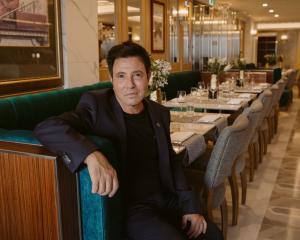
However, Mr Lewers denied he or council management had developed a "siege mentality" from dealing with a rolling maul of challenges that include the Lakeview development, Ladies Mile master plan, arterial bypass and cryptosporidium outbreak.
"I think we’re just a small council doing a lot.
"What I’ve seen over the past three years is how hard staff and councillors are working — I get emails coming through to me at 11 or 12 o’clock at night as they’re working on stuff."
Boosting the council’s comms team would mean more people and higher rates, he said.
"I see an organisation that’s strained, but they’re doing their best and we just can’t cover everything."
The latest issue fuelling negative sentiment about the council is its decision a fortnight ago to invoke emergency legal provisions to directly discharge treated wastewater into the Shotover River.
Councillors are clearly feeling the backlash.
Speaking before Tuesday’s vote to strip Cr Niki Gladding of her committee roles for leaking that decision to media, Cr Cody Tucker said he had "never received so many threatening emails or seen so much anger in the community".
Mr Lewers accepted the council had been reactive and could have been more open about issues with the disposal field since they first emerged four years ago.
The council had got "wrapped up" in trying to fix the disposal field, then dealing with mechanical failures at the treatment plant in 2023 and last year.
A major refresh of information about the wastewater treatment system on the council website should have happened much earlier, he said.
He and councillors wanted all testing results from the treatment plant going on to the council website as soon as possible.
"The message is not getting out there that we’d like to see."
Asked if he has personally done a good enough job as the council’s chief spokesman, Mr Lewers said it had been a "tough line to walk" since the Otago Regional Council sought an enforcement order in the Environment Court in January.
"Once the court mediation kicked in you’ve got to let that process happen and be quite guarded in what you say, and that can be quite frustrating at times."
He and councillors were looking forward to being able to speak more freely once the mediation was over.
Looking ahead, Mr Lewers said the council was working through options for a new land disposal system to be built in four to five years.
In the meantime, proposed national standards for wastewater discharges — contained in a Bill now being consulted on — have the potential to make land disposal unnecessary, but the community would get an opportunity to express their preference either way.
The government was yet to "formulate the process" for that.
Allocating $77.5 million last year to the development of a new disposal system shows the council is serious about that option.
Asked whether iwi preferences to stop direct discharging into the river were given too much weight in the original decision to build the disposal field, Mr Lewers said it was made with the best information available at the time, and no-one could have foreseen the field’s "design deficiencies".
The council of the day approved a "very cost-efficient" option that met cultural needs and enabled the decommissioning of the oxidation ponds and the bird strike risk they posed.
"It ticked a lot of boxes, so you can completely understand why that decision was made."











